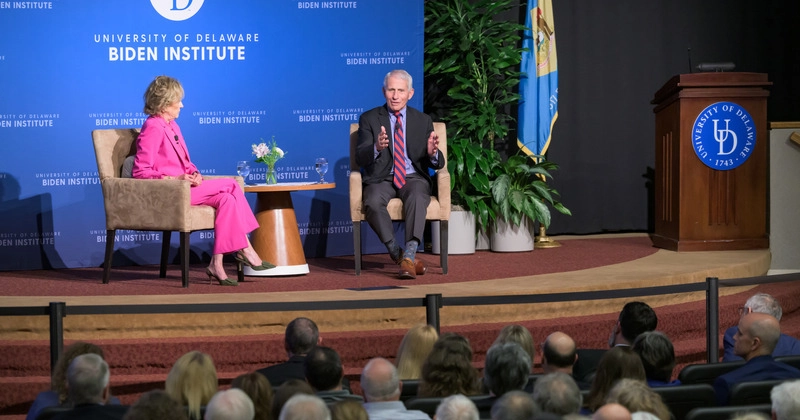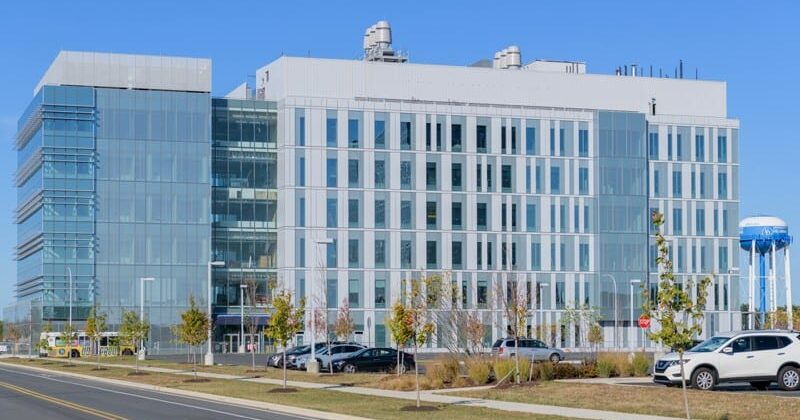RESEARCH
DISCOVERY
A Blog Devoted to UD Innovation, Excellence & Scholarship
BIDEN INSTITITE
Fauci Fireside Chat
Valerie Biden Owens, chair of the Biden Institute at the University of Delaware, discussed disaster preparedness and crisis decision-making with renowned physician, immunologist and infectious disease researcher Dr. Anthony Fauci on May 3 as part of events surrounding the Disaster Research Center’s 60th anniversary.
UD President Dennis Assanis welcomed Fauci and the other guests to the University, thanking those involved in bringing the event to fruition.
“The topic under discussion today is decision-making during a crisis, and frankly, I think we’d be hard pressed to find a better expert to speak on this topic than our guest, Dr. Anthony Fauci,” Assanis said. “We are very excited that you are here today to share your insights and lessons learned while dealing with some extremely challenging events in history, including the recent COVID-19 pandemic and the HIV/AIDS crisis.”
U.S. Sen. Chris Coons introduced Biden Owens, a UD alumna and the first American woman to lead a presidential campaign. Biden Owens also successfully managed seven different campaigns for the Senate. Coons also introduced Fauci, who joined the National Institutes of Health (NIH) in 1968 and served as director of NIH’s Institute of Allergy and Infectious Diseases from 1984-2022.
“He is probably one of the most widely recognized, highly cited and widely admired public health and scientific leaders on the planet,” Coons said. “Most of us know him from his firm, fearless, consistent leadership during the COVID-19 pandemic. I first got to know him during Ebola, when he was a remarkable leader at the institute.”
Fauci has advised seven sitting presidents on public health matters ranging from Ebola to HIV/AIDS to COVID-19. He was recognized by President George W. Bush with the Presidential Medal of Freedom in 2008 for his groundbreaking work to advance understanding and treatment of HIV/AIDS.
Biden Owens opened the dialogue by asking something everyone in the audience was wondering: What is it like to advise a sitting president? The interactions, he said, were always determined by the public health issue faced by that presidential administration.
With Ronald Reagan and George H.W. Bush, there were the early years of HIV. For George W. Bush, there were the anthrax attacks that followed Sept. 11. In between, President Bill Clinton oversaw years when HIV went from a death sentence to something more treatable with medication. Barack Obama was in the White House for three viral outbreaks: the 2009 swine flu, Ebola and Zika. Then there was the COVID-19 pandemic, which straddled the presidencies of Donald Trump and Joe Biden.





